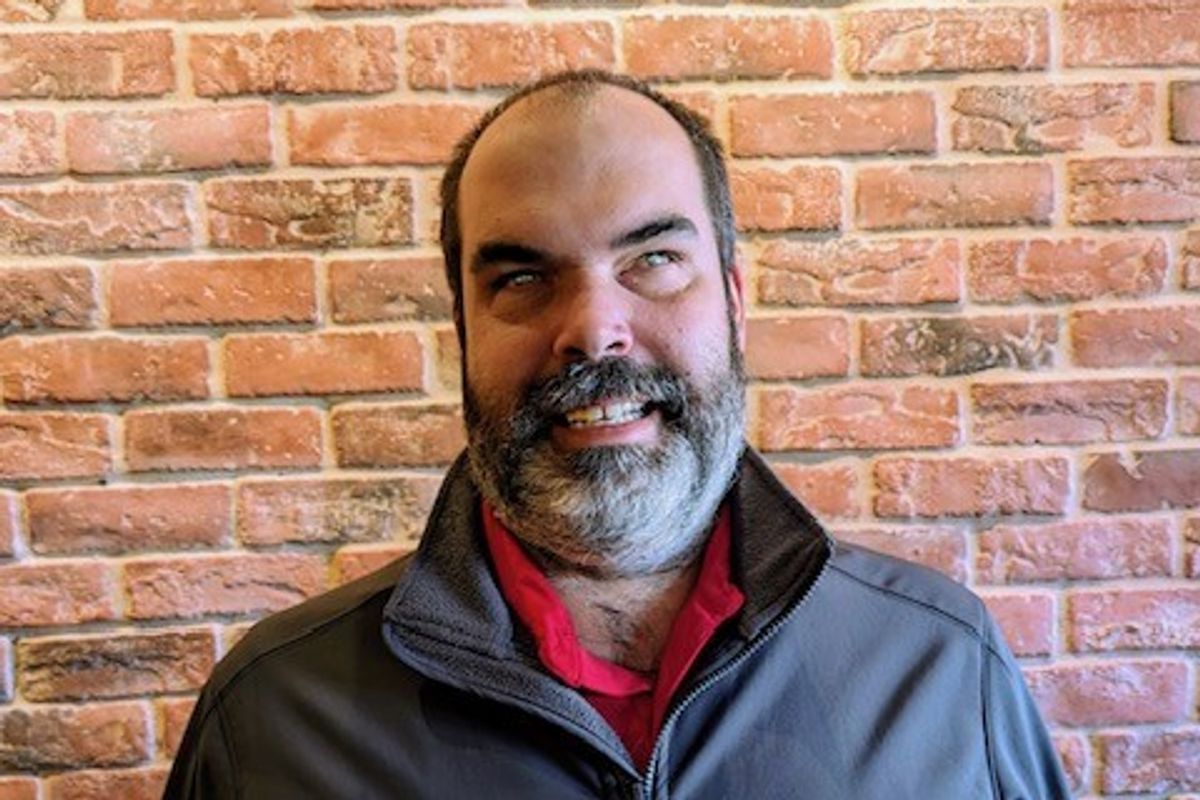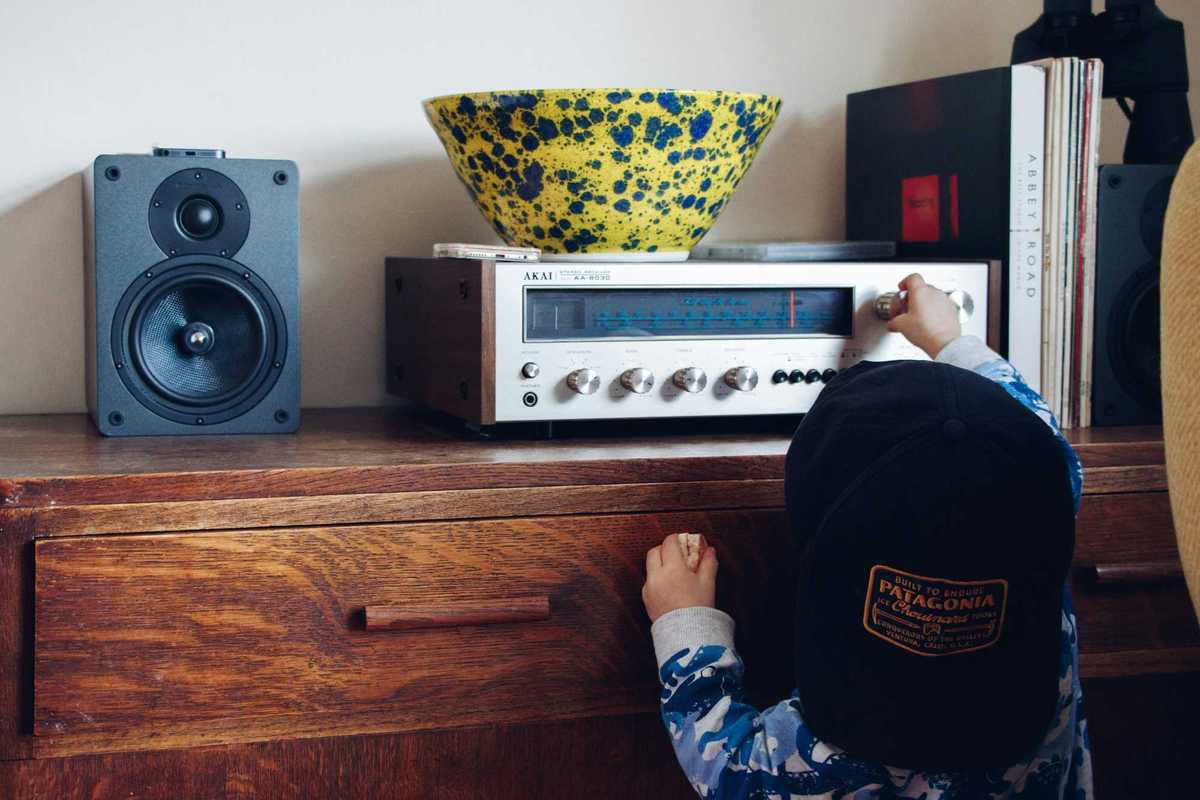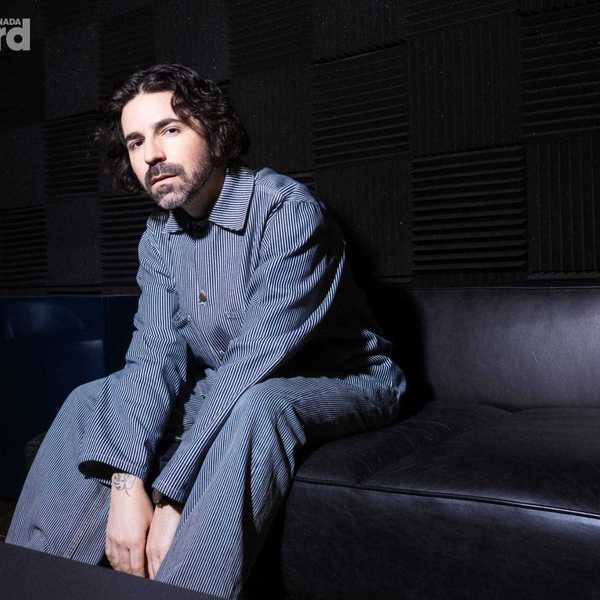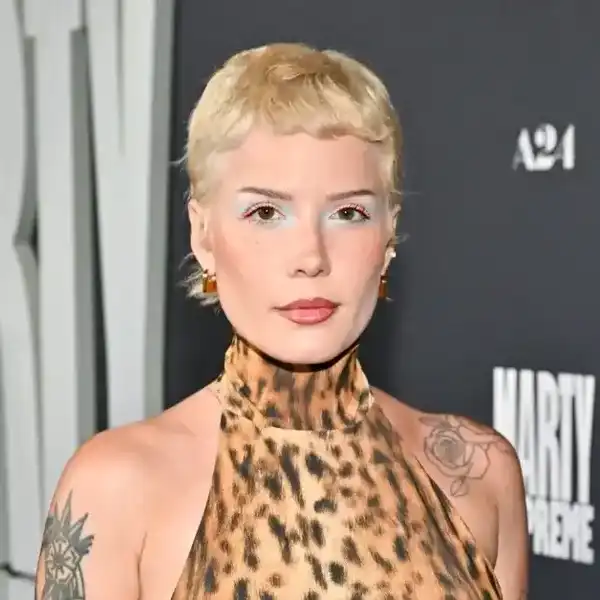A Q&A With Stingray Country Radio's Shilo Bellis
Being blind has never impeded Shilo in his career. The country radio fixture talks accessible technology, how radio is changing, and how Taylor Swift is a gateway to country music's enduring popularity.

Shilo Bellis
Blind from birth, Shilo Bellis graduated from Loyalist College in 2003 from the Radio Broadcasting program and took a one-month placement with Newcap Radio (now Stingray Radio) in Moncton where he has now become a fixture, hosting a weekday afternoon drive show called The Goin’ Home Show on New Country 96.9 (CJXL).
He also hosts Country Confidential, a Stingray-syndicated podcast featuring interviews with CanCountry acts such as Tim Hicks, Tyler Joe Miller and JoJo Mason. And if that weren’t enough, he is the national music director for the Stingray New Country and Real Country brands and can be heard on-air weekday afternoons in Fredericton, Sydney and Newfoundland.
He has a home studio where he works from in Sussex, New Brunswick, just outside St. John and is married to Gina who on occasion can be found by his side at concerts in the area.
Where did your love for radio begin?
I first developed my love for radio, calling in to request shows when I was a kid. I always thought it was fascinating that I could call, could hear my voice on the radio, and they'd play my song. I remember waiting for my request to come on and recording the call on tape.
I credit all the incredible sports broadcasters I spent most evenings listening to for getting me involved in broadcasting. Some of my early radio memories involve summer days with Tom Cheek and Jerry Howarth. I was always fascinated with their connection with listeners and how they could make you feel like you were at the game. I am unsure if I would've developed my love of radio without the hours spent listening to those guys.
Who are some of your radio heroes?
Of course, the sports guys I loved growing up and they were a big part of why I got into broadcasting. I remember spending so many weekends listening to countdown shows on the radio. From when I was 8 or 9 years old, I remember having a little radio in my room and really enjoying Casey Kasem. In my high school years, it was, of course, Rick Dees. I would spend hours listening to those guys, always thinking it would be so cool to chat with artists like that. It would be great to be the guy everyone could count on to get cool info about their favourite celebrities. I also loved the listener interaction, especially Rick Dees and his phone calls. This was before the internet really took off, so hearing people from faraway places on the radio was always great.
Take our readers through a typical day at work for you. What technologies do you use to help you do your music work and on-air show?
My work day always starts with reading the latest news and entertainment headlines. I always want to know what the world is talking about. I still spend some time every morning on social media. It's also an excellent gauge to determine what people are interested in on any given day. I do most of my reading on my iPhone, which comes with a screen reader.
I usually start working on my show after that. The technology I use for my show is a screen reader called JAWS and radio software for voice tracking.
I always do my East Coast markets first. I do my Edmonton show late in the day, or sometimes I'll wait until after supper so it's as current as possible.
After taking care of my East Coast shows, I move on to the music director part of my job. This usually involves a lot of phone calls, listening to music, checking out music charts and other music data such as streaming numbers. I also do the music log for New Country 96.9 in Moncton. We use Music Master for music scheduling, and for the most part, my screen reader works pretty well with it.
I am the national music director for the Stingray country stations, so part of my job is to keep in touch with the other music directors across our chain and come up with what songs we are adding every week and what songs we are moving to different categories. I use an Excel spreadsheet for much of that work. Again, that software works well with my JAWS screen reader.
As mentioned earlier, I finish my day by making sure I have any new news or entertainment info and doing my Edmonton show.
What, in your view, is the essence of a great radio show?
What makes a great radio show is different for everyone, depending on the host's personality, the time they are on during the day, and the format they are working in. I try to include things in my show that I am interested in talking about. Country listeners love knowing what is up with their favourite artists, so I include much of that info in my shows. I always try to keep my show light, fun, and fast-moving.
Some hosts are good at chatting about serious topics, and I love that they can do it. I always try to remember that maybe the listener has enough serious stuff going on in their lives, so why can't I be that place where they can turn and know that whatever is going on during the day, we can talk about it, but not dwell on the serious, sad or controversial parts. I love politics, but you will never find me chatting about it on the radio. Too many radio hosts get caught up in thinking the show is for them, but in my mind, it is for the listener. I've done my job if I can be a friend or a distraction. The perfect radio show for me is one that you can turn off when you get home and say, "Hey, I really enjoyed spending time listening to my friend today."
Country music has become a big part of today's pop music mainstream. In your view, who are some of the artists driving this that have mass appeal?
I love looking at the pop music charts and seeing country artists at the top. I remember getting into an argument about whether Taylor Swift was country early in my career. It's probably the same argument the '90s music directors had about Shania and Garth.
My stand has always been that if Taylor wants to call herself a country artist, we'll take it for as long as it lasts. Any artist that can help bring country into the mainstream is good for everyone involved. The new wave of country artists doing that is impressive. Morgan Wallen is country, and he's getting the pop listeners into the format. Even guys like Blake Shelton and Luke Bryan, because of the TV shows they were on, really helped country music grow. The struggle that the country format has is that people only know they like country music once they listen to it. Most people who say they hate country music haven't been exposed to the format; at least, that's my belief.
Country has many different sounds, and I need help believing anyone can hate the entire format. If you like pop, we've got it. Rock, we've got it, traditional country, that as well. Morgan, Luke, Blake, Zach Bryan and others are exposing new people to the country format, and I believe that once exposed, the people stay.
Do you think other younger artists like Taylor Swift have opened the doors to today's country music artists like Kelsea Ballerini, Dustin Lynch, Restless Road and others? Is the music pendulum swinging more toward today's country?
Right now, we aren't sure where the pendulum is swinging. Country music has always adapted to trends, and I think we are trying to figure out the next trend. There is no doubt that Taylor helped shape the new pop-country sound, and I still believe that group of artists is a strong part of the format. However, we also have a major TV show helping with the country format shift. Yellowstone has really pushed alt-country out into the mainstream. Zac Brown, Chayce Beckham, Lainey Wilson and Bailey Zimmerman are some of the world's biggest new country artists. It's an exciting time in the format. So far, both pop and alt-country can survive together. It'll be interesting if the format can keep both, or will it swing one way or the other?
What advice would you give those with physical challenges who want to enter today's radio world?
My advice for people wanting to get into the radio world is to learn as much as possible about the industry. Ask as many questions as possible, and really get an idea of what the job is all about.
If you have a physical issue, don't let it stop you, but help develop solutions to adapt to your new job. With the technology we have today, your physical challenges should not get in the way of a rewarding and fun career in radio. It's crazy how much things have changed since I joined the radio world in the early 2000s. The technology keeps improving, making it easier for anyone to get into the business. However, no matter your physical ability, radio is a tough industry to get started in. The number of jobs in the field is getting less and less every year. The lack of jobs will be the challenge of getting into radio, not your physical issues.
Can you give us a time or moment when things didn't work out the way you had planned it?
Like most jobs, almost every day, things will only sometimes work out as you planned. One of the scariest times for me in radio was when we, as a company, switched to a different music scheduling software. I was pretty new in my music director job when we switched from a program called Power Gold to Music Master. I used a demo of Music Master, and it really didn't look like it was going to work with my screen reader. I was able to work with our tech guys and the music master tech guys, and I also asked a few friends who were better at using the JAWS software than I was for help. Together, they helped me learn to adapt the software to my needs, and I was able to turn a negative into a positive. I was able to keep my music director job and also learned some new technical skills in the process. It is important to remember that just because a new challenge pops up doesn't mean it's the end of the world. Asking questions, working with others to develop solutions, and being willing to adapt to any situation are essential.
Radio AI is here. For some, it'll be a new toolbox to help radio better capture local info and social media. Radio AI can create DJ shows and live on-air interactions, with more to come. What are your thoughts on this new trend?
I am not going to have much to say about radio AI because I haven't spent much time working with it. Radio people should be as afraid of it as in many other fields where technology can replace them. AI is going to really impact radio in the coming years. Everything from music scheduling, picking the songs radio plays based on data, hosting shows, and many other tasks will be changed by AI.
Stingray's Senior Vice-President/Brands & Content, Steve Jones, is one of radio's great champions. What have you learned working with Steve at Stingray that you can share?
I have been lucky to work with Steve Jones for most of my radio career. I have learned a lot from him. Many of my answers to what makes a good radio show can be attributed to some of Steve's early work with me as a broadcaster. His belief in me over the years has gone a long way in making me the radio person I am today. He was part of the hiring process when I got my job with the company. He didn't see a blind broadcaster as a challenge; he was willing to take a chance on me. I will always be grateful that he did.

















